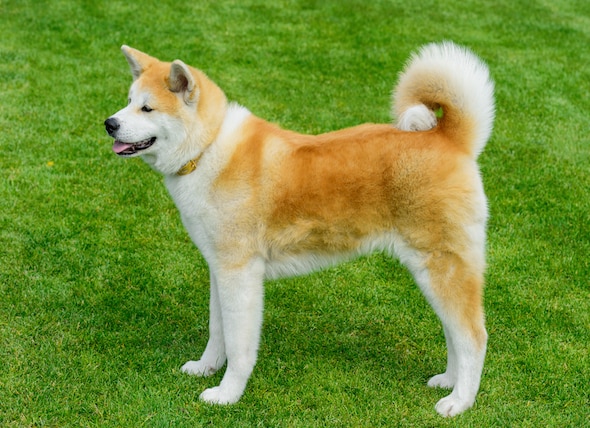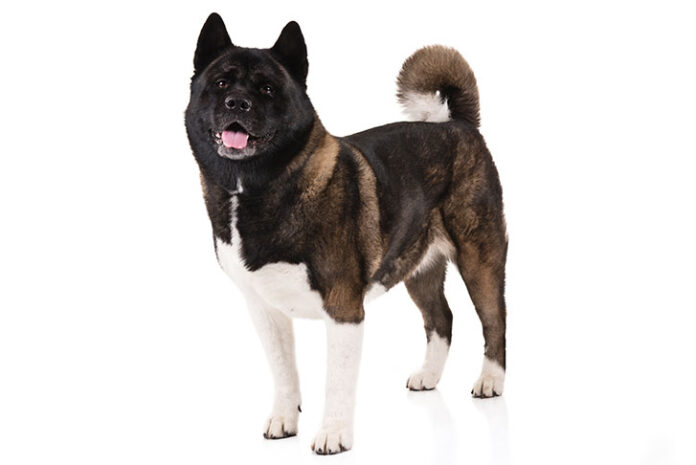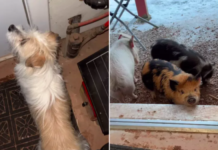Last Updated on February 23, 2024 by Fumipets
The Akita is a working Japanese dog breed. The typical Akita weighs about 100 pounds and is strong, loyal, and brave. Except to warn of intruders, the Akita is deafeningly silent. As a result, he’s a natural guard dog. Akitas have an aggressive temperament, which the Japanese breed to perpetuate.

Aggressive
According to Dan Rice, author of “Akitas,” Akitas have an aggressive gene that is difficult or impossible to alter. Their demeanour may go from playful to hostile in a matter of seconds. As a result, the American Kennel Club advises against leaving young children or other animals alone with one. Go to obedience training courses with your strong-willed breed to learn how to control your Akita’s aggressiveness if you want a secure and quiet home. Classes will educate you on how to become and keep your Akita’s leader.

Strong-Willed
Because Akitas are strong-willed dogs that are prone to aggressiveness, it’s critical to shape them from the first few weeks of their lives. Akitas are socialised to people and other animals by responsible breeders; you must continue to socialise an Akita throughout his life. Spaying and neutering an aggressive dog, as well as continuing to work with your Akita throughout his life, may help socialise him.
Akitas may be socialised by participating in dog agility, a competitive activity that evaluates a dog owner’s ability in training and handling. A socialised dog is one that has been well-trained and mannered. The owner of an Akita must be a strong leader; else, the Akita will assume that position, which is natural for Akitas. An Akita may be obnoxious, possessive, and protective. You keep your leadership position by training and working with your Akita.

The Tough Guy
Rice claims that “few, if any, shy or reclusive Akitas exist.” Despite the fact that they may be sociable and extroverted with other dogs with whom they were reared, some of them never trust another dog, even a puppyhood buddy. For example, an Akita is not the kind of dog you bring to a dog park. When there are other dogs around, he should never be let off the leash.
https://www.youtube.com/watch?v=UvP2aasTVLY
Not For Everyone
Before acquiring an Akita, it’s essential to have some dog experience. For a first-time dog owner, this demanding breed may be challenging to manage. They must be taught and nurtured to be sociable, extroverted, and welcoming of others, despite their adorable and cuddly appearance as pups. Akitas are known to prey on small animals like cats and small dogs.

Guard Dogs
Akitas have an innate instinct to protect their owners. They guard your house from intruders, they are also territorial, and they will not accept visitors unless you are there. Padlock the gate to keep outsiders out if your Akita spends time in a fenced backyard. For example, if a kid walks into your yard to collect a ball she inadvertently tossed there, the Akita may injure her.

Aggressive Triggers
It’s risky to get down on the Akita’s level and look him in the eyes. This is seen by Akitas as aggressiveness, and they will respond violently. They will compete with you for dominance in your home, but you can overcome this with regular training. Never hit or bite your Akita, and never behave aggressively toward him. By doing so, you may be able to make him more aggressive. You and your Akita should have a strong connection if you treat him with respect.



















